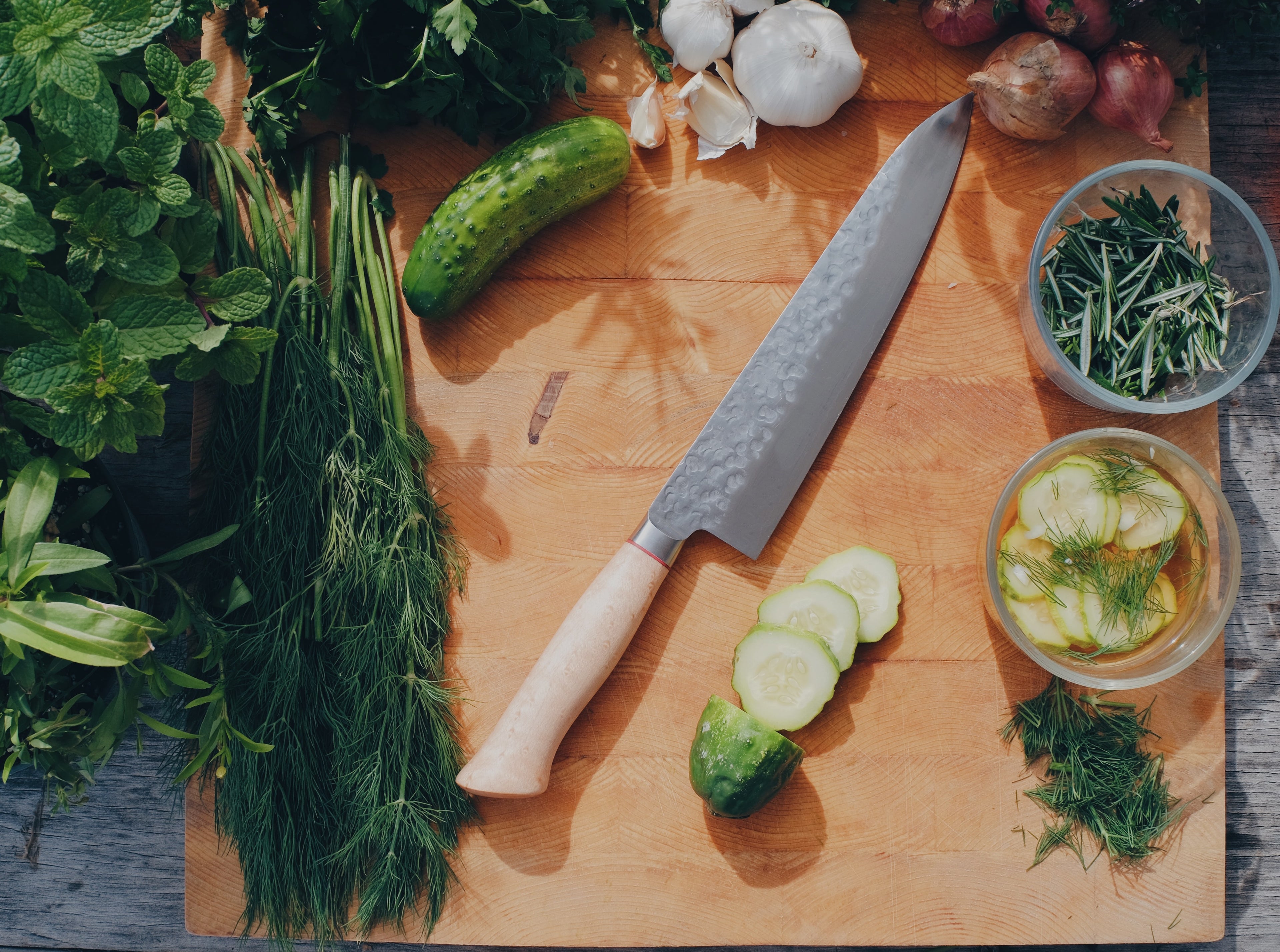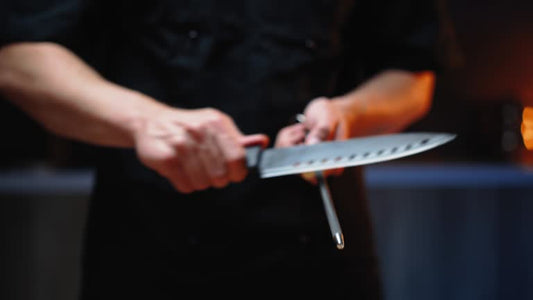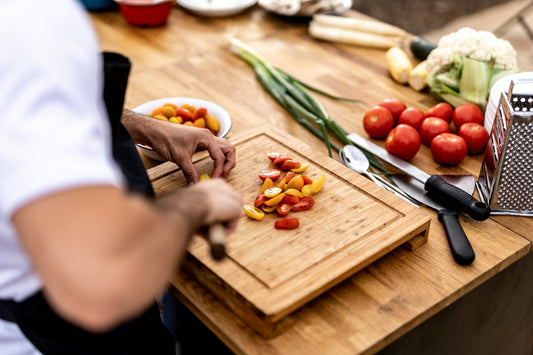
Kosher sharpening
Commitment to Kashrut standards at Sharpen Up 365
We are dedicated to upholding the highest standards of kashrut at Sharpen Up 365, emphasizing the meticulous care and attention to detail required in maintaining kosher practices. Ensuring the appropriate "hag'alah" (purification) of all knives and utensils within our facility, is of the greatest importance us and our team. Our commitment to kashrus reflects our deep respect and maintenance for the traditions and dietary laws that guide kosher living.
What is Kosher?
Jewish dietary laws, known as "kashrut," dictate what is considered kosher. These laws specify the types of food that Jewish people are allowed or prohibited to eat and the proper ways of preparing and consuming them. The term "kosher" itself means "fit" or "proper" in Hebrew.
Key principles of kashrut include the prohibition of certain animals, the separation of meat and dairy products, and the method of slaughtering animals (shechita) for meat consumption. Additionally, specific rules govern the inspection and preparation of food, including the use of kosher utensils and the avoidance of certain additives.
Observance of kashrut is a central aspect of Jewish tradition, influencing daily life, social events, and religious practices. It serves as a symbol of Jewish identity and adherence to religious principles.
Does knife sharpening need to be Kosher?
Knife sharpening in a kosher kitchen is crucial to prevent cross-contamination between meat and dairy. In kosher dietary laws, known as kashrut, maintaining separate utensils for meat and dairy is essential to uphold the dietary restrictions. While knife sharpening itself may not seem directly related to kashrut, it becomes significant in preventing the mingling of meat and dairy flavors through cross-contamination.
The process of knife sharpening involves removing metal from the blade to create a fine edge. When a knife is used for both meat and dairy without proper sharpening and cleaning in between, residual flavors can transfer from one type of food to another. This transfer can compromise the separation required by kosher dietary laws.
In a kosher culinary setting, we adhere to the practice of "hag'alah" (purification) to maintain the kashrut of utensils. This entails immersing the utensils in boiling water after their use with either meat or dairy. At Sharpen Up 365, this meticulous process is precisely incorporated into our approach.
Not sure? Ask a Rabbi!
While knife sharpening itself is not explicitly addressed in kosher laws, it plays a vital role in preventing cross-contamination in a kosher kitchen. By adhering to the practice of proper kosher sharpening, individuals can uphold the principles of kashrut and maintain the integrity of their kosher kitchen. It's important to note that practices may vary, and consulting with a knowledgeable authority, such as a rabbi, provides specific guidance in matters of kashrut.
Learn More
View all-

What Really Makes a Knife Sharp?
When people ask, “What makes a knife sharp?” the usual answer is “a razor edge.” But that’s only half the truth. The real secret lies in geometry. A knife doesn’t just...
What Really Makes a Knife Sharp?
When people ask, “What makes a knife sharp?” the usual answer is “a razor edge.” But that’s only half the truth. The real secret lies in geometry. A knife doesn’t just...
-

You’re Doing It Wrong! How Often to Actually Sh...
Struggling with dull knives that make meal prep feel like a workout? It might be time to sharpen them! A sharp knife makes cooking safer, easier, and more efficient. Learn...
You’re Doing It Wrong! How Often to Actually Sh...
Struggling with dull knives that make meal prep feel like a workout? It might be time to sharpen them! A sharp knife makes cooking safer, easier, and more efficient. Learn...
-

Common Myths About Knife Sharpening Debunked
Many misconceptions about knife care stem from quick online videos, leading enthusiasts and cooks astray. A common myth is that only dull knives need sharpening; however, even sharp knives benefit...
Common Myths About Knife Sharpening Debunked
Many misconceptions about knife care stem from quick online videos, leading enthusiasts and cooks astray. A common myth is that only dull knives need sharpening; however, even sharp knives benefit...



